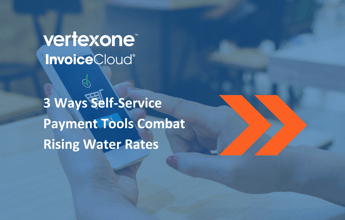Over the past decade, utilities, governments, businesses, and nonprofits have come to realize that financial considerations and information aren’t the only factors driving behavior. Social and psychological factors also play a significant role in shaping how consumers make decisions regarding water and resource use.
This realization has led to a heightened interest in behavioral science, a multidisciplinary field that draws from psychology, sociology, public health, and behavioral economics to explain the complex mechanisms that shape human behavior. And when used strategically, research has shown behavioral science holds the potential to generate measurable gains in consumers’ water-use efficiency.
Perhaps one of the most well-known and widely applied areas of behavioral science centers on social influence and the related concept of social norms. Psychologists have understood for some time that people are profoundly influenced by those around them and tend to unconsciously mirror the actions of those in their vicinity.
The phenomenon, dubbed the “Chameleon Effect” by New York University psychologists and cognitive science researches Tanya L. Chartrand and John A. Bargh in the Journal of Personality and Social Psychology, is explained as a perception-behavior link in which the mere perception of another's behavior automatically increases the likelihood of engaging in that behavior oneself.
Moreover, a growing body of additional peer-reviewed research has shown the substantial sway personal networks and societal norms have in altering individuals environmental and energy habits. With studies showing the influential impact of comparative social norm feedback on inducing environmentally minded behavioral change, like when it comes to the propensity for recycle, for example.
Research published late last year in the journal Resources, Conservation & Recycling Advances (RCR Advances) found that people who received information about their neighbors’ recycling habits, along with information regarding their own, end up recycling considerably more than those who only receive information about how and why they should recycle.
When it comes to applying these concepts to conservation water management and sustainable usage allocation practices, VertexOne’s VXsmart drew inspiration from a study by Cal State University San Marcos psychology professor P. Wesley Schultz which focused specifically on the effect personalized normative feedback has in the water and energy sector.
In the experiment, researchers distributed leaflets to suburban residents with information about their neighbors' average energy use as well as their own. To signify energy conservation, a smiley face was included on the leaflets for households who consumed less electricity than the average. Conversely, a sad face was used for households whose consumption rates were higher than the average.
After a brief follow-up period, households who received the bundle of normative feedback showed significant reductions in energy use, with the most sizable reductions concentrated among households who initially consumed above-average amounts of energy.
VXsmart puts these energy-saving concepts into practice as part of their conservation-minded approach to water management software. Every month “Home Water Reports” are sent to utility customers with comparative information about their household’s water usage, the usage of similar homes in their neighborhood, and how they stack up to the water usage of “efficient” neighboring homes. The reports also come with personalized tips on how they can better meet their water saving needs.
Independent analyses conducted on VXsmart’s methodology reveal the reports not only end up reducing customer’s water consumption rates across the board by an average of 5%, but also significantly increase customer satisfaction and incentivize program engagement as well.
As climate change and growing populations threaten to exacerbate global water vulnerabilities, the importance of water conservation and efficiency cannot be overstated. Fortunately, the utilization of behavioral science makes it possible to meaningfully reduce residential water usage. And by combining those sustainability efforts with targeted information and financial incentives, water utilities and their stakeholders have the potential to help provide and further ensure reliable access to clean, potable water for all.
Delve deeper into the impact behavioral science can have when it comes to strengthening water conservation efforts, and learn more on how you can put the science into practice with additional insights and opportunities for water-use efficiency found in our Behavioral Science for Conservation eBook.




